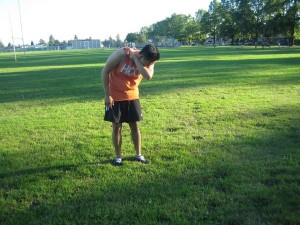Overview Of Neck Pain
- Neck pain can happen anywhere in your neck, including the base of your head to the upper part of your shoulders.
- It can restrict your ability to move your head and neck.
- Neck pain is usually experienced in individuals older than 50.
Causes Of Neck Pain

- Usually, neck pain is caused by actions that place tension on the neck.
- Slumping, painting your walls, or sleeping with your neck bent are some things that can lead to neck pain.
- These types of activities can result in neck tension, a sprain, or a contraction to the muscles in the neck.
An injury can also be the cause of a neck pain. Falling from a high distance or the impact from a car accident can lead to neck pain. Some less frequent medical complications can also result in neck pain, such as:
- Rheumatoid arthritis.
- Constricting of the spinal canal in the neck.
- A neck infection.
Symptoms Of Neck Pain
- You might feel a lump, stiffness, or serious pain in your neck.
- The pain might branch out to your arms, upper back, or shoulders. This could lead to a headache. You might not be able to turn your neck or head easily.
- If there is strain on a spinal nerve, you may have pain that moves down your arm.
- You might also have a lack of feeling, stinging, or weakness in your arm.
- If your neck pain is ongoing (chronic), you might have trouble surviving with daily life. Expected side effects of chronic pain include exhaustion, depression, and nervousness.
Treatment Of Neck Pain
For neck pain that happens unexpectedly:
- Anti-inflammatory medication such as Ibuprofen can also help alleviate pain.
- Avoid further injury to your neck by varying activities and routines, like changing your sitting or sleeping position.
